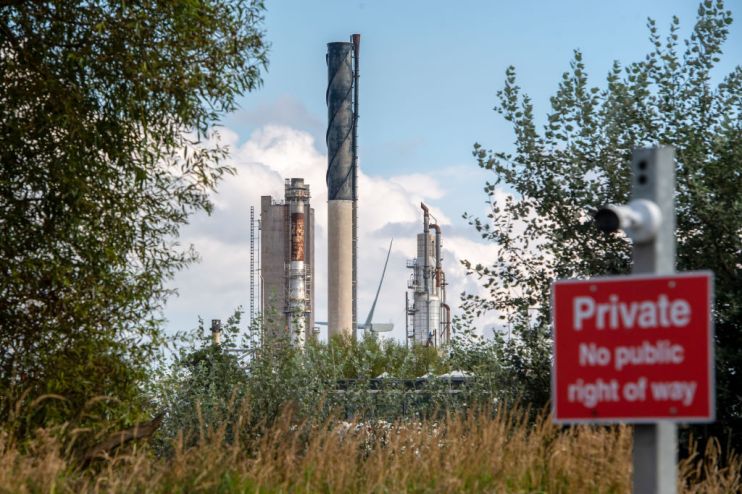UK risks carbon dioxide shortage due to energy taxes, warns vital fertiliser firm

The fertiliser firm at the heart of last year’s carbon dioxide shortage has warned the business secretary that high energy taxes and low-cost foreign imports will jeopardise the country’s supply of the gas in a confidential letter seen by City A.M.
CF Fertilisers, which provides around sixty per cent of the UK’s carbon dioxide, has told business secretary Kwasi Kwarteng in bailout talks last year that high energy taxes will “add millions more in costs in coming years” to CO2 and fertiliser production, according to documents obtained via a freedom of information (FOI) request filed by City A.M.
The firm first hit the headlines last September when it stopped making CO2 at its Cheshire and Teeside plants due to soaring natural gas prices making production unprofitable.
Carbon dioxide is produced as a by-product of fertiliser production, and the closure of the plants sparked concerns that the UK’s supply of carbon dioxide, a vital gas used across the economy from abattoirs to pubs and a vital part of the food supply chain.
The firm also told the government in the letter that charges “from the emissions trading scheme, modified shorthaul tariff, high electricity costs, and a looming green gas levy, will… move UK fertiliser production to be the highest cost global producer”.
The producer was bailed out by the taxpayer in September of last year to maintain production amid widespread fears of a carbon dioxide shortage.
The department for business, energy and industrial strategy did not disclose the value of the bailout in its response to City A.M.’s FOI request.
The company reached another deal with Downing Street in October to keep its plants open for three more months. A final deal was reached in February.
According to minutes of a meeting in September between Kwarteng and CF Fertilisers, the firm said UK fertiliser producers were being driven out of business by the market being flooded by cheap supplies from Russia.
“For years, much more carbon-intensive Russian, Lithuanian, and Polish fertiliser have been imported in high levels due to their lower cost structures,” CF Fertilisers said.
The company urged the government to ramp up levies on Russian fertiliser imports to protect British producers.
“The current anti-dumping duties on imports of Russian ammonium nitrate are too low to provide relief,” it said.
When approached for comment, a BEIS spokesperson told City A.M.: “There are anti-dumping tariffs on Russian Ammonium Nitrate which have been in place for many years. In solidarity with the Ukrainian people following Russia’s criminal invasion, we have imposed tariffs on most Russian fertilisers – and rightly so.”
“Industry came to an agreement in February that enabled CF Fertilisers to continue operating without taxpayer support. In the longer term, the market must take steps to improve fertiliser production resilience without the further government support.”
CF Fertilisers did not respond to a request for comment.